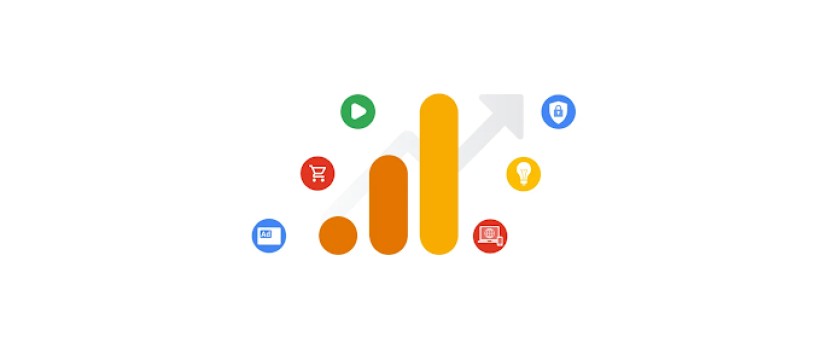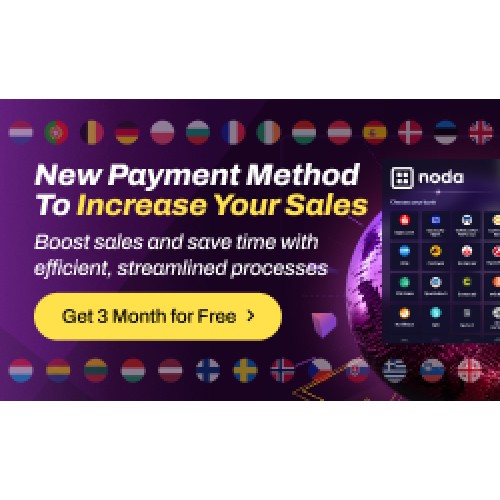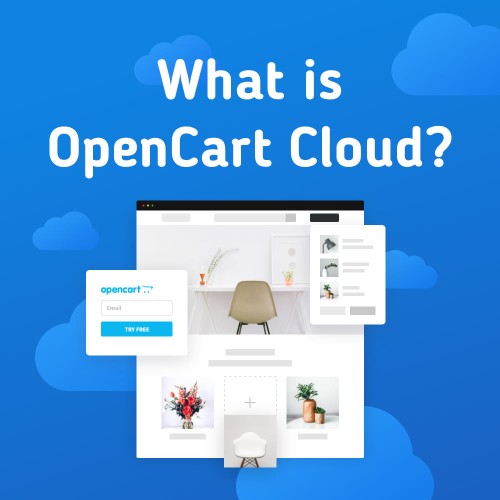In the ever-evolving landscape of online retail, staying ahead of the competition requires a deep understanding of customer behaviour and preferences. That's where online retail analytics comes into play – it's the secret sauce that empowers businesses to make data-driven decisions, optimize their operations, and ultimately thrive in the digital marketplace.
In recent years, the realm of online retail analytics has witnessed a monumental shift with the emergence of Google Analytics 4, or GA4 for short. This updated iteration of Google's analytics platform has proven to be a true game-changer, offering online retailers an array of cutting-edge features and capabilities. In this blog post, we'll delve into the world of GA4 and explore how it's revolutionising online retail analytics.
Integrating Google Analytics 4 (GA4) with your OpenCart e-commerce store can provide valuable insights into your website's performance, customer behaviour, and help you make data-driven decisions to optimize your online business.
But before we dive into GA4, it's essential to set the stage by acknowledging the undeniable significance of cloud commerce in modern online retail. Cloud commerce, often referred to as e-commerce on the cloud, has redefined how businesses operate and interact with customers in the digital age. Its scalability, flexibility, and cost-effectiveness have paved the way for unprecedented growth and innovation in the online retail sector.
Now, let's embark on our journey to understand the power of GA4 and how it's shaping the future of online retail analytics.
Understanding GA4
What Is GA4 and How Does It Differ from Universal Analytics?
To grasp the impact of GA4, we must first demystify what it is and how it differs from its predecessor, Universal Analytics. While Universal Analytics served as a robust tool for tracking website activity, GA4 takes analytics to a whole new level. It's not merely an upgrade; it's a paradigm shift.
GA4 represents Google's vision for the future of analytics. Unlike Universal Analytics, which was primarily focused on tracking websites, Google Analytics 4 is designed with omnichannel tracking in mind. This means it can seamlessly collect data from websites, mobile apps, and other digital platforms, providing a comprehensive view of user interactions across the digital ecosystem.
Key Features and Benefits of GA4 for Online Retailers
GA4 introduces a myriad of features that make it an indispensable tool for online retailers. Some of the standout features include:
Enhanced Event Tracking: GA4 makes it easier to track specific user interactions, such as button clicks, video views, and purchases, allowing retailers to gain deeper insights into customer behaviour.
User-Centric Measurement: With GA4, the focus shifts from tracking sessions to individual users, enabling a more personalized and user-centric approach to analytics.
Predictive Metrics: GA4 leverages machine learning to provide predictive metrics, such as potential revenue, churn probability, and more, helping retailers proactively address customer needs.
Deeper Integration with Google BigQuery: GA4 seamlessly integrates with Google BigQuery, enabling businesses to perform advanced data analysis and unlock valuable insights.
The Importance of GA4 in Tracking User Behavior Across Platforms
In the era of multi-device, multi-platform shopping, tracking user behavior across various touchpoints is crucial. GA4 excels in this aspect by offering cross-platform tracking capabilities, allowing retailers to understand how customers transition between devices and channels before making a purchase decision. This level of insight is invaluable in optimizing marketing strategies, improving user experiences, and driving conversions.
The Rise of Cloud Commerce
Defining Cloud Commerce and Its Role in Modern E-Commerce
Cloud commerce, also known as e-commerce on the cloud, represents a transformative approach to conducting online retail operations. At its core, cloud commerce involves hosting all aspects of an e-commerce business, from website hosting to inventory management and customer data storage, on cloud-based infrastructure. This shift from traditional on-premises solutions to the cloud has been pivotal in reshaping modern e-commerce.Furthermore, the integration of tools like a WordPress quiz plugin can enhance customer engagement and data collection, contributing to the evolution of e-commerce strategies.
In cloud commerce, businesses leverage cloud services provided by third-party vendors or ask digital product studios to build custom solutions that take advantage of the scalability, flexibility, and cost-efficiency that the cloud offers. This approach eliminates the need for substantial upfront hardware investments and allows retailers to focus on their core competencies – delivering exceptional products and services to customers.
Advantages of Cloud Commerce
The adoption of cloud commerce is underpinned by several compelling advantages:
Scalability: Cloud commerce platforms can easily scale up or down to meet the demands of varying traffic and sales volumes. This elasticity ensures that retailers can handle peak shopping seasons without worrying about infrastructure limitations.
Improved Monitoring: Many cloud commerce platforms comes with built-in monitoring capabilities. Be it monitoring your website for predicting any issues or your infrastructure, you can leverage these cloud commerce platforms to eliminate the need for third-party monitoring tools.
Flexibility: Cloud-based solutions provide the flexibility to adapt quickly to changing market conditions. Retailers can experiment with new features, integrate third-party applications, and pivot their strategies with ease.
Cost-Efficiency: Cloud commerce eliminates the need for significant upfront capital investments in hardware and IT infrastructure. Retailers pay for the resources they use, making it a cost-effective option for businesses of all sizes.
Popular Cloud Commerce Platforms in the Market
Several popular cloud commerce platforms have gained prominence in the market, playing a crucial role in the marketing mix for online retailers. These platforms offer a range of features and services tailored to the needs of e-commerce businesses. Some notable examples include:
OpenCart: OpenCart is an open-source e-commerce platform known for its simplicity and ease of use. It provides a range of features for creating online stores and offers a variety of themes and extensions for customization. OpenCart is a popular choice for small to medium-sized businesses looking to establish an online presence.
Shopify: Known for its user-friendly interface and extensive app ecosystem, Shopify is a top choice for businesses looking to quickly set up an online store and expand their reach.
BigCommerce: BigCommerce offers a comprehensive suite of e-commerce tools and features, making it an excellent choice for businesses looking for scalability and customization options.
Magento Commerce: Magento Commerce is known for its robust features and flexibility, making it suitable for both small and large enterprises.
Now, let's continue with the integration of GA4 and cloud commerce:
Integration of GA4 with Cloud Commerce
Seamless Integration of GA4 with Cloud Commerce Platforms
One of the most exciting developments in the realm of online retail analytics is the seamless integration of GA4 with cloud commerce platforms. This integration enables businesses to harness the full potential of both tools, creating a synergy that drives growth and innovation.
GA4 can be integrated with cloud commerce platforms like Shopify, BigCommerce, and Magento through straightforward configurations and plugins. These integrations allow retailers to effortlessly track user behaviour, sales data, and customer interactions across their e-commerce platforms, providing a holistic view of their online operations.
Benefits of Integration
The integration of GA4 with cloud commerce platforms unlocks a treasure trove of benefits:
Real-Time Data: Retailers can access real-time data on website traffic, sales, and customer behaviour. This immediacy empowers businesses to make timely decisions and adapt to market changes on the fly.
Improved User Insights: By tracking user interactions across the e-commerce journey, businesses gain deeper insights into customer preferences and pain points. This information can be used to optimize product offerings, marketing strategies, and user experiences.
Personalized Experiences: Armed with the data from GA4, retailers can personalise the shopping experience for each customer, from recommending products based on past behavior to tailoring marketing messages and even implementing text to speech technology. Personalization drives higher conversion rates and customer loyalty.
Setting Up GA4 with a Cloud Commerce Platform
For those looking to harness the power of GA4 in tandem with their cloud commerce platform, the setup process is approachable, albeit with some nuances depending on the chosen e-commerce solution. In the upcoming section, we'll provide step-by-step instructions and valuable tips on how to seamlessly integrate GA4 with your cloud commerce platform of choice. Stay tuned as we explore the practical aspects of this game-changing integration!
Enhanced Retail Analytics with GA4 and Cloud Commerce
Specific Analytics Insights for Online Retailers
The fusion of GA4 and cloud commerce platforms empowers online retailers with a plethora of analytics insights that are invaluable for making data-driven decisions:
Customer Journeys: By tracking user interactions across devices and platforms, retailers gain a comprehensive view of customer journeys. This enables businesses to identify touchpoints that drive conversions and those that need optimization.
Cart Abandonment Analysis: GA4 excels in helping retailers pinpoint the moments when customers abandon their shopping carts. This granular insight allows for the implementation of strategies to reduce cart abandonment rates, such as retargeting campaigns or improving the checkout process.
Conversion Rates Optimization: Understanding the customer path to conversion is crucial. GA4's event tracking capabilities enable retailers to identify conversion bottlenecks and test strategies to enhance conversion rates.
Real-World Examples of Success
Let's take a look at a couple of real-world examples of how businesses have harnessed the synergy between GA4 and cloud commerce to drive success:
Example 1: E-Commerce Apparel Retailer
An online apparel retailer integrated GA4 with their Shopify store. By analyzing data from both platforms, they identified that customers who viewed product videos were three times more likely to make a purchase. Armed with this insight, they strategically placed product videos on their product pages, resulting in a 15% increase in conversion rates.
Example 2: Electronics Retailer
A large electronics retailer integrated GA4 with their Magento e-commerce platform. Through cross-device tracking, they discovered that many customers researched products on their mobile devices but completed purchases on desktop computers. This led to the optimization of their mobile shopping experience and a 10% increase in overall sales.
Example 3: Online Cutlery Store
An online cutlery store integrated GA4 with their WooCommerce store.Through cross-device tracking, they discovered that many customers browsed products on their smartphones while commuting or on their lunch breaks, but completed purchases on their desktop computers at home in the evenings. This insight allowed the cutlery retailer to optimize their mobile site for product research and discovery, highlighting key product features and imagery, reviews, and comparisons. They also adjusted their marketing strategies to retarget mobile browsers with ads in the evenings aimed at driving them back to the site to complete their purchases on desktop. As a result of these changes, the online cutlery store saw a lift in mobile traffic and increased sales conversions from mobile users by 12%.
Challenges and Considerations
Potential Challenges of Implementing GA4 and Cloud Commerce
While the integration of GA4 and cloud commerce platforms offers substantial benefits, it's essential to be aware of potential challenges:
Integration Complexity: Integrating GA4 with a cloud commerce platform can sometimes be complex, particularly for businesses with custom-built systems. Compatibility issues may arise.
Data Governance: Ensuring data consistency and accuracy across platforms is crucial. Data silos and discrepancies can lead to misguided decisions.
Solutions and Strategies to Overcome Challenges
To overcome these challenges, consider the following strategies:
Professional Assistance: Seek expert help, especially if you're dealing with complex integrations. Consultants or developers with expertise in GA4 and cloud commerce platforms can streamline the process.
Data Validation and Quality Control: Implement robust data validation and quality control processes to ensure that data is accurate and consistent across platforms.
Data Privacy and Security
In the age of heightened data privacy concerns, it's paramount for online retailers to prioritize data protection. When integrating GA4 and cloud commerce, ensure that:
User Consent: Users are informed about data collection and have the option to provide consent.
Compliance: Adhere to data protection regulations such as GDPR or CCPA, depending on your target audience.
Secure Storage: Store customer data securely, whether on the cloud or on-premises, to prevent data breaches.
Case Studies and Success Stories
Case Study 1: E-Commerce Fashion Brand
A popular e-commerce fashion brand integrated GA4 with their cloud-based Shopify platform. By closely monitoring user interactions, they identified that visitors who engaged with their "New Arrivals" section spent 30% more time on the site. When establishing an E-Commerce Fashion Brand, partnering with the right eCommerce web site developer is paramount. Seek a developer with a proven track record in fashion-focused online stores to ensure your products are presented elegantly and effectively.
Case Study 2: Electronics Retailer
An electronics retailer merged GA4 with their Magento cloud commerce platform. By tracking cart abandonment rates, they devised a personalized email marketing campaign targeting cart abandoners. This simple yet effective strategy led to a 15% decrease in cart abandonment rates and a 25% increase in overall online sales.
These case studies exemplify how the integration of GA4 with cloud commerce platforms can translate into tangible successes, from boosted sales figures to improved customer engagement and ROI.
Future Trends in Online Retail Analytics
Upcoming Trends and Innovations
The future of online retail analytics promises to be both exciting and transformative. Some key trends and innovations to watch out for include:
AI-Driven Insights: Artificial intelligence and machine learning will play an increasingly central role in predictive analytics, offering retailers deeper insights into customer behaviour and preferences.
Voice Commerce Analytics: As voice-activated devices gain popularity, tracking and analysing voice commerce interactions will become essential for retailers.
Advanced Customer Segmentation: Online retailers using ClickFunnels will likely continue to refine their customer segmentation techniques. Machine learning and AI algorithms will help identify and target specific customer groups more effectively, leading to higher conversion rates and personalized marketing strategies.
Virtual and Augmented Reality Analytics: With the advent of virtual and augmented reality in online shopping, analytics will evolve to measure user interactions and preferences within immersive environments.
The Evolution of GA4 and Cloud Commerce
As for the future of GA4 and cloud commerce, we anticipate:
Enhanced Integration: GA4 and cloud commerce platforms will become even more seamlessly integrated, allowing retailers to access a unified view of customer data.
Greater Personalization: The synergy between GA4 and cloud commerce will enable retailers to deliver hyper-personalized shopping experiences, further boosting conversion rates and customer loyalty.
Advanced Security Measures: In response to increasing concerns about data privacy, GA4 and cloud commerce platforms will incorporate enhanced security features to protect customer information.
Conclusion
In a rapidly evolving digital landscape, online retailers must harness the power of analytics to stay competitive. This blog post has explored the pivotal role of GA4 and cloud commerce in reshaping online retail analytics.




Login and write down your comment.
Login my OpenCart Account